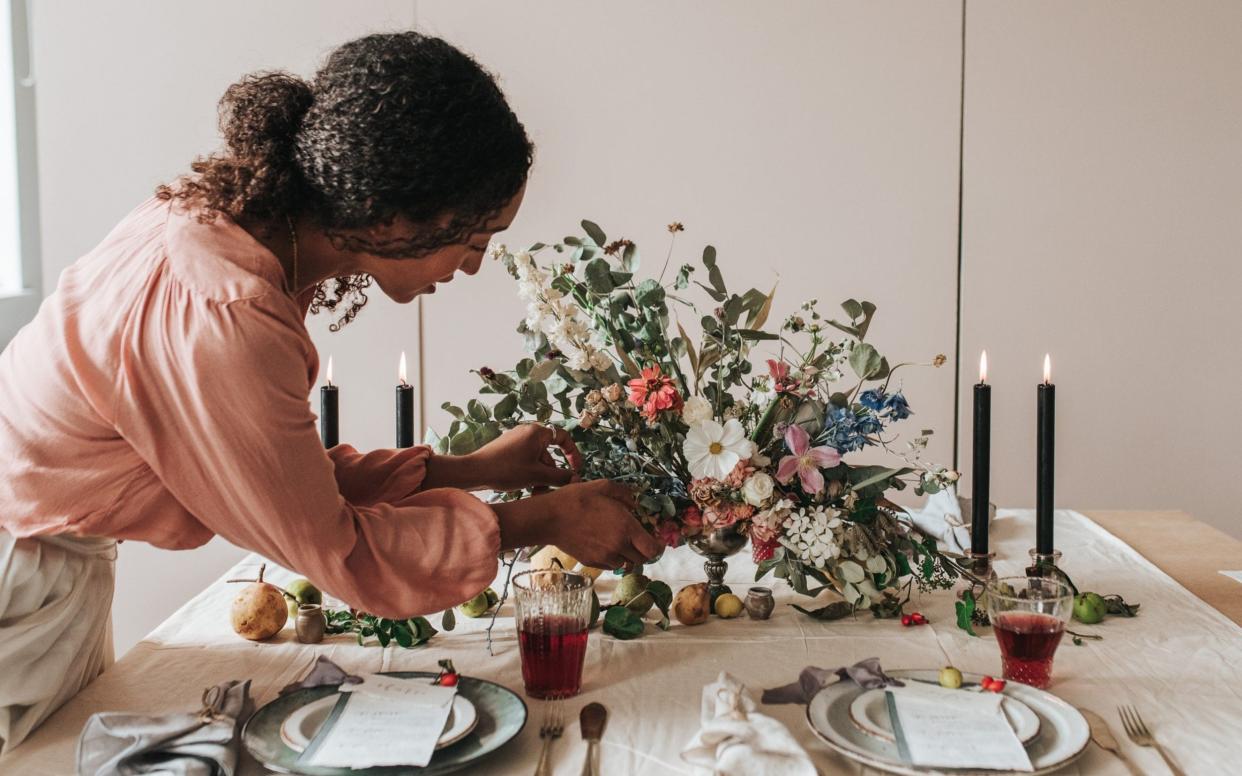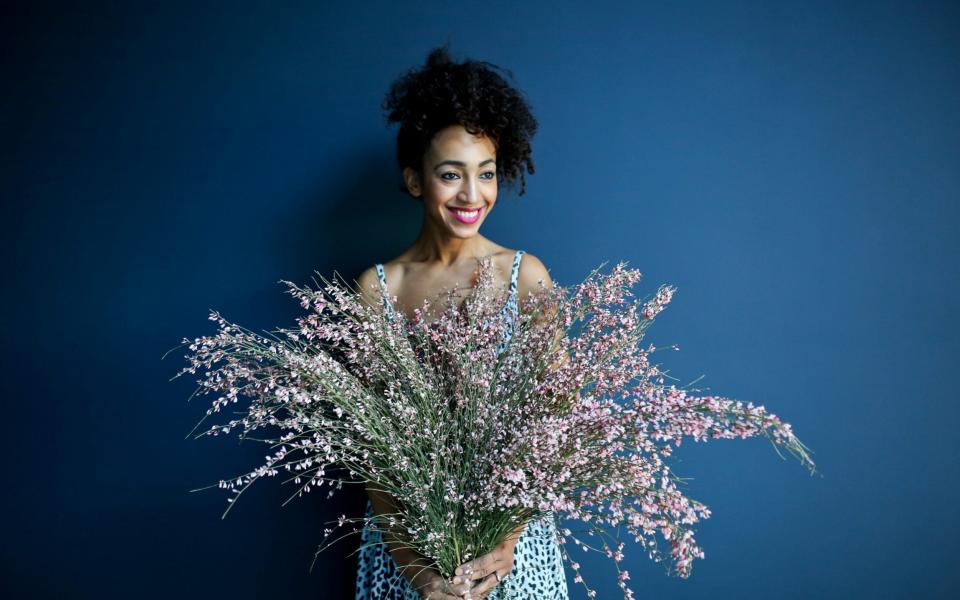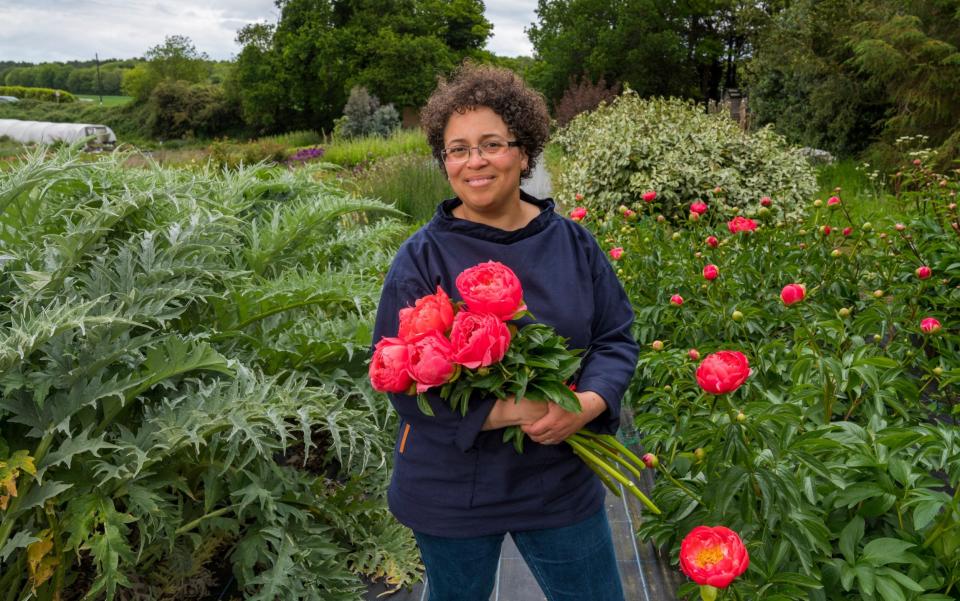The blossoming of diversity in floristry

It’s been an interesting 2020 for the floristry industry. Just as the British growing season kicked off, as people started to prepare for weddings and look ahead to summer events, lockdown changed everything. Florists proved nimble, making bouquets of seasonal flowers and setting up online ordering systems.
But beyond the coronavirus pandemic, an even greater change has been afoot, as florists and growers have – at what should have been the busiest time of their year – made rapid and remarkable progress to uphold and celebrate diversity in their industry.
In June, the death of George Floyd in the United States and the awakening of a new era in the Black Lives Matter movement rippled throughout the world. As thousands marched in protest, many businesses, including florists, quietly mobilised. The individuals interviewed here pulled together online panel discussions, shared ideas and amplified the work of black florists and flower growers and those of colour.
While much of the horticultural industry sat tight as Instagram turned black and statements appeared on websites, a noticeable anti-racist revolution was under way among the flower-growing and arranging community.
Sage Flowers: Romy St Clair and Iona Mathieson
Newcomers who set up online panels and courses to promote diversity.

"We decided we were going to try to break down the barriers that exist for women and men of colour"
Romy St Clair and Iona Mathieson, the co-owners of Sage Flowers in Peckham in South London, were among the first to start making a difference.
The company is a relative new kid on the block: after forming in 2018, the pair made the move from pop-ups in a local market to occupying a shop in Rye Lane within a year. “I think a lot of people rolled their eyes when we got the shop, thinking, ‘These girls have been here literally eight months’,” says St Clair (in navy jacket, right).
While their bright, sculptural and tropical arrangements have seen them work with fashionable brands such as Glossier and Louboutin, the company has always wanted to reflect the diversity of its neighbourhood (Peckham has a BAME population of 71 per cent, according to 2017 figures from Southwark Council).
“The first person we hired was a local, 18-year-old black boy who came and helped us wash buckets,” explains Mathieson. “He just walked in and asked for a job. We love that people come to us, the door is literally open.”
“We never wanted to feel like we were part of the gentrification in the area,” says St Clair, “that we were shutting people out from their own homes.”
Nevertheless, events earlier this summer have spurred Sage on to do more to make floristry more accessible. After challenging Covent Garden Flower Market to make improvements to its diversity strategy, the pair hosted an online panel called Future Flowers: Facilitating Diversity in the Flower Industry, with eight panellists from across the growing and floristry industry to talk about how the industry could increase diversity. “Change starts with us”, they wrote.
Within weeks, Future Flowers had evolved into a free, three-month training programme open to people of colour keen to get into floristry. “We decided we were going to try to break down the barriers that exist for women and men of colour,” Mathieson says. “We’ll pay for it. We’ll host it. We’ll start it. We’ll be the ones to bring these people in.”
So far, the first two cycles are fully booked. St Clair and Mathieson – mid-20s career-changers both – will be teaching students about the business lessons they’ve learned, while former teachers from prestigious institutions such as McQueens and London Flower School will assist with the foundations of floristry.
“We hope it’ll be a great start for those who can’t afford a typical course,” says St Clair. They are determined, too, to place graduates into floristry jobs afterwards, improving the diversity of the industry more widely in the process.
Floral designer: Hazel Gardiner
Uses her experience as an industry outsider to run free workshops for young, disadvantaged women

"I noticed there weren’t many people who looked like me”
Even for established florists of colour, the past few months have been a galvanising time. As a floral artist, Hazel Gardiner has been bringing her ethereal and immersive arrangements to events and weddings since 2016.
She says the uptick in interest in her work in the wake of the Black Lives Matter movement has been “extraordinary” but has also stirred difficult feelings of childhood exclusion, growing up in “a very white suburban area”.
“Very much as soon as I walked into the [flower] market, I noticed there weren’t many people who looked like me,” she tells me. “I could go to a course or a workshop day, and I’m always the minority.”
While Gardiner jokes that the new attention on her company has felt “like I’ve had a really big PR company come in and work on my behalf”, she is keen to take that energy to enable others like her. “I don’t just want to take all the Instagram likes and not be doing anything,” she says.
One of the first decisions she’s made is to give event and wedding clients the option to let her reuse their flowers for free floristry workshops for young, disadvantaged women in collaboration with The Us Programme initiative.
“It’s a really quick and easy way for me to get directly into what I’ve been preaching about,” she says. Gardiner also shifted into floristry after a career change, and invested in the McQueens training course, but acknowledges such introductions to the industry are among the “many barriers put up in terms of cost.”
Forever Green Flower Company: Cel Robertson
Is the only black member of Flowers from the Farm collective and runs its Instagram account.

"We need to keep talking about these issues to try and effect some real change"
For Cel Robertson, a flower grower based on the North Norfolk coast, the events of the past few months became an opportunity to speak out. Robertson started growing food organically more than 20 years ago and has been fascinated with provenance ever since.
Seven years ago, she poured that enthusiasm into Forever Green Flowers, around the same time that the British flower-growing collective Flowers from the Farm was set up. It now boasts more than 800 members – of whom Robertson is the only black member.
When she took over the group’s Instagram account in June, she decided to break the mould of the stories told in the captions, and wrote, instead, about her upbringing in “a poor, working class, mixed-race family from east London” and, further back, her enslaved ancestors.
“I carry the legacy of slavery with me every day,” she posted. It became one of the account’s most engaged updates.
“It was strange for me to share that with people,” Robertson tells me over the phone as she makes up bouquets, the swipe of her secateurs audible in the background. “But I did think it was something important that we should be talking about, and I thought, I’m going to make that leap and do it. And I’m so pleased I did because it showed that people do want to know more, and they want to talk about it more, so that’s good for us for the future.”
Flowers from the Farm has also set up an action group to, as Robertson says, “improve our diversity and inclusion”. Some of this will involve, she realises, putting herself in the spotlight: “Being in the public eye isn’t really where I want to be, but if I want to show other people of colour that this is an industry that’s open to them as well, I have to be the face of that in some ways, don’t I?”
What all agree on is the importance of keeping the discussions going after the protests and the movement shifts out of the headlines. “It’s great that it has started conversations, but I would be really sad if it all just went away,” says Gardiner.
“Part of us wanting real change is being able to keep the momentum going as well,” Robertson agrees. “We need to keep talking about these issues to try and effect some real change.
Alice is the author of ‘Rootbound, Rewilding a Life’ (Canongate, £14.99) and you can follow her on Instagram here.


